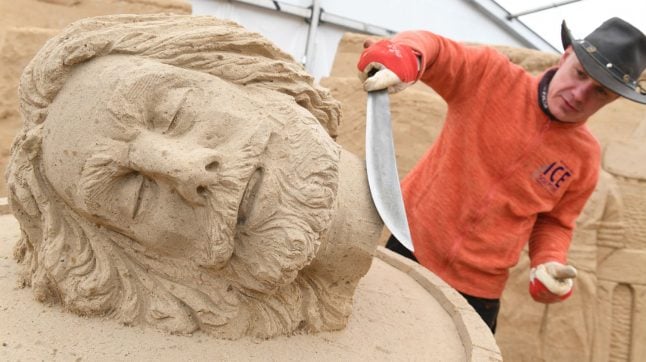Nikolaus Störtebeker, born in Wismar in 1360, got his start in piracy much the same as many across the ages: for a long time he was a legal, paid-up mercenary raider.
He was one of the Vitualienbrüder (Victual Brothers) and was hired during one of the periodic wars between Denmark and Sweden in the late 14th century to sink Danish ships and run food to the Swedes. It was constant work, albeit risky, and the pay reflected that.
SEE ALSO: Legendary pirate's skull stolen from Hamburg museum
Wars don't last forever, however, and when the hostilities came to an end, Störtebeker wasn't quite ready for the party to finish. Together with his shipmates, he decided to go plunder anyone sailing around the Hanseatic trading cities.
This was a serious issue – it was the time that the trading group known as the Hanseatic League was at its height, and unbelievable amounts of gold and trade goods were making their way out of cities like Hamburg, Lübeck and Rostock. Having a pirate like Störtebeker operating out of a nearby island base was very bad for business.
'Robin Hood' of the waves
For years, Störtebeker and his crew, along with several other ships, evaded capture. There are plenty of tall stories about their exploits. In fact, the stories remain are all we have, as pirates at this time weren't great at recording their movements.
These tales are all very much 'Robin Hood’ stuff – taking shiploads of gold off greedy merchants and parceling portions to the impoverished. There's also anecdotes about drinking vast amounts of beer – Störtebeker was said to be able to drink a four-litre mug of beer in one gulp.
These tall tales are all most certainly rubbish, but they are great stories.
What we do know is that Störtebeker was captured in 1401, around April. Some say it was as a result of one of his crew selling him out and immobilizing his ship. Whatever the case, he was brought back to Hamburg for trial and execution.
 Alexander Koll as pirate Klaus Störtebeker in a play at the Störtebeker Festival in 2018. Photo: DPA
Alexander Koll as pirate Klaus Störtebeker in a play at the Störtebeker Festival in 2018. Photo: DPA
This is where it gets a little crazier.
One says that when his ship was seized, it was found to be crammed with gold and silver – the riches apparently used to build the spire of Hamburg's Katharinenkirche.
Another, more far-fetched tale, says that Störtebeker offered his captors a gold chain that was so big it could be wrapped round the entire city, if they'd just let him go. Obviously a cost-benefit analysis did not work out in his favour.
The legend of Störtebeker
Perhaps the most epic tale involving Störtebeker centres on the day of his execution, on October 20th 1401. Realizing that his goose was well and truly cooked, he begged the city officials not to kill his fellow shipmates if his headless corpse could walk past them.
Duly, the headsmen did his job. And legend has it that Störtebeker's corpse got up and managed to stumble past 11 men before collapsing in the dirt.
Apparently this wasn't enough to impress Hamburg's elites, however – 70 odd fellow pirates are said to have been executed with him.
 Photo: DPA
Photo: DPA
A skull, said to belong to Störtebecker, now has pride of place at Hamburg's Museum, alongside a facial reconstruction, showing a suitably roguish looking fellow. There's also exhibits relating to his exploits and festivals dedicated to him.
Okay, so it may not be a patch on the buccaneers that plagued the Caribbean for decades, but never let it be said that Germans haven't had a go at the piracy game – heck, they even got in first!
DISCOVER
-
Katherinenkirche / Katharinenkirchhof 1, 20457 Hamburg
-
Hamburg History Museum / Holstenwall 24, 20355 Hamburg



 Please whitelist us to continue reading.
Please whitelist us to continue reading.
Member comments